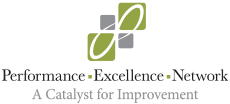14 New Year’s Resolutions for Personal Productivity, Health, Happiness
January 24, 2012
Research shows that up to 80% of New Year’s resolutions are broken, and that the average date of breaking resolutions is about January 20 (so if you made it this far, you are better than most!). But if you want a second chance, here are 14 research-based New Year’s resolutions for you to try – tips for improving your personal productivity and time management, your health, your happiness, and your overall levels of success in 2012. They come from several sources – an annual University of Buffalo study of research-based resolutions, Inc. Magazine, CNN, and NPR. I’ll bet if you try just two or three of them (and stick with it for more than three weeks!), you’ll see instant improvements in your personal and professional performance this year…
The Council’s mission is to advance excellence within organizations, communities, and individuals. However, much of our visible work is in facilitating organizational excellence, so I thought it fitting to kick off the New Year with some tips for improving personal performance.
First, here are nine suggestions for improving your professional performance in 2012:
1) Work backwards from goals to milestones to tasks.1 According to project management blackbelt Tony Wong, just “writing ‘launch company website’ at the top of your to-do list is a sure way to make sure you never get it done.” He suggests you break down the work into smaller and smaller chunks until you have specific tasks that can be accomplished in a few hours or less. Not only will it sequence and pace your work in a more effective way, but it will also be motivating to you, as you complete the smaller tasks that eventually lead to large accomplishments.
2) Stop multi-tasking.1 Everyone’s busy these days, juggling multiple projects and competing priorities. Furthermore, in today’s instant-access society, we’re also constantly inundated with emails, phone calls, texts, social media alerts, and all sorts of other demands on our time. So there is a constant tendency to want to work on a few things at once. But get this: according to a British study reported by CNN2, switching tasks more than 10 times in a day makes you dumber than being stoned on marijuana! Seriously: smoking pot drops your IQ by about five points, but multitasking decreases IQ by an average of 10 points (five for women and 15 for men!). Focusing on one thing at a time will improve your completion rate as well as your effectiveness at doing all things well.
3) Be militant about eliminating distractions.1 We hosted a workshop three years ago, facilitated by Professor Art Hill of the University of Minnesota’s Carlson School of Management, in which he shared effective strategies for improving personal productivity. In it, I remember Dr. Hill commenting that we get interrupted on average about 200 times a day – yes, about every two-and-a-half minutes. And the average time to recover from one distraction? Ten minutes. That’s the amount of time it takes to refocus your mental energy back on the task at hand. So, yes, do the math: we spend a big part our days dealing with distractions, causing considerable loss of personal productivity. So lock your door; put a sign up for people to leave you alone; turn off your phone, texts, and email; in fact, you may want to disconnect from the Internet/satellite altogether so as not to be tempted to check messages when you are concentrating on something else. Go to a quiet area and focus on completing one task.
4) Schedule your email. 1 Also suggested by Dr. Hill, batch your emails two or three times a day. Checking your email constantly throughout the day creates a ton of noise and kills your productivity: you are continually in reaction, fire-fighting, response mode rather than focusing on higher priority (or at least higher value) tasks.
5) Work on your own agenda.1 Most people begin their day with email. Don’t. As mentioned in #4, emails can really waylay your time in that they can cause you to have to react to others’ requests rather than accomplish what you need to. So after you wake up, have something to eat (to get the glucose back up) and drink (preferably water to rehydrate) and then set prioritized goals for the rest of your day. I usually script my to-do list: 4-6 key tasks that I want (or have) to accomplish. You can then start tackling these tasks systematically (and email can be left until later).
6) Use the phone.1 Email is a great communication tool, but it isn’t for ALL communication. Certainly, it’s not intended for conversations, so don’t reply more than twice to an email. Pick up the phone instead; you’ll get resolution quicker.
7) Use LinkedIn effectively.3 According to a December article in Inc. Magazine, there are five key mistakes people make in using LinkedIn: posting an unprofessional photo, soliciting fawning recommendations (go for recommendations with substance over those with superlatives), linking to an overly personal webpage (it’s best to keep personal and professional separate), providing a trail to youthful indiscretion (make sure your LinkedIn profile only contains relevant information and that people can’t follow threads to questionable content elsewhere on the Internet – like that picture of your college kegger), and misspelling anything (mistakes will lead people to believe you are stupid or careless; or both). LinkedIn is a great networking tool, but try to avoid these five common mistakes to increase your effectiveness and credibility.
8) Be a humble leader5. According to research conducted by Dr. Bradley Owens, assistant professor of organization and human resources in the University of Buffalo’s School of Management, humble leaders are more effective and better liked in the workplace. In his interviews of leaders at military, manufacturing, healthcare, financial services, retailing, and religious organizations, Owens found that “admitting mistakes, spotlighting follower strengths, and modeling teachability are the core of humble leadership. These three behaviors are powerful predictors of the leader’s personal growth, as well as the organization’s growth.” Sounds like the classic definition of servant leadership, a concept that has been around for about 20 years, and has widely been validated as best practice in leadership effectiveness.
9) Work in 60 to 90 minute intervals and move around every hour.1,4 Your brain uses up more glucose than any other bodily activity: typically you will have spent most of it after 60-90 minutes (which is why people feel so tired after long meetings or long days). Also, new research last year shows that those in sedentary jobs are 64% more likely to develop heart disease than those who are more active. So take break: stand up to take your phone calls; go for a walk; do a couple of minutes of stretching or light calisthenics. Do anything to get the blood flowing and to recharge your mind. The general rule is a few minutes of activity every hour.
And now for a few quick personal resolutions, all from the University of Buffalo’s annual research-based list of best ways to increase your health, happiness, and success in 20125:
1) Floss every day to protect against pneumonia and heart disease.
2) To lose weight, eat the same foods over and over (although variety is necessary for balanced nutrition).
3) Read more fantasy to combat loneliness – this satisfies a need for human connection.
4) Maintain separate e-mail accounts (one for work and one for personal) to avoid being scammed.
5) For better health, reflect on the things that give your life meaning. Feelings of spirituality appear to offer protection against emotional distress and physical ailments.
Sure, most of us will fall into old habits pretty quickly, but if you’re looking to improve your personal productivity, your health, and/or your overall well-being in 2012, try some of these resolutions. And let us know how it’s going – visit our blog to post a comment! I’ll check back with you next month to see if you made it past the first 20 days!
Yours in Improvement,
Brian S. Lassiter
President, Performance Excellence Network (formerly Minnesota Council for Quality)

